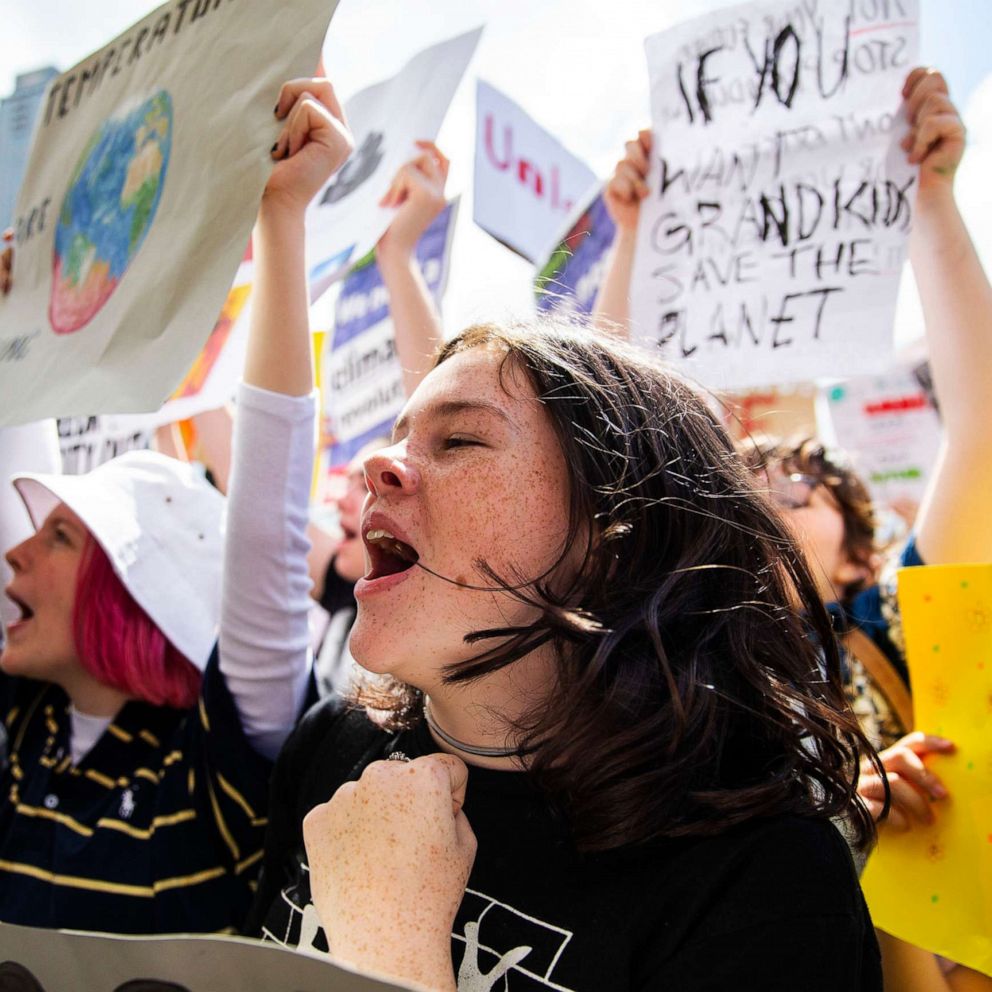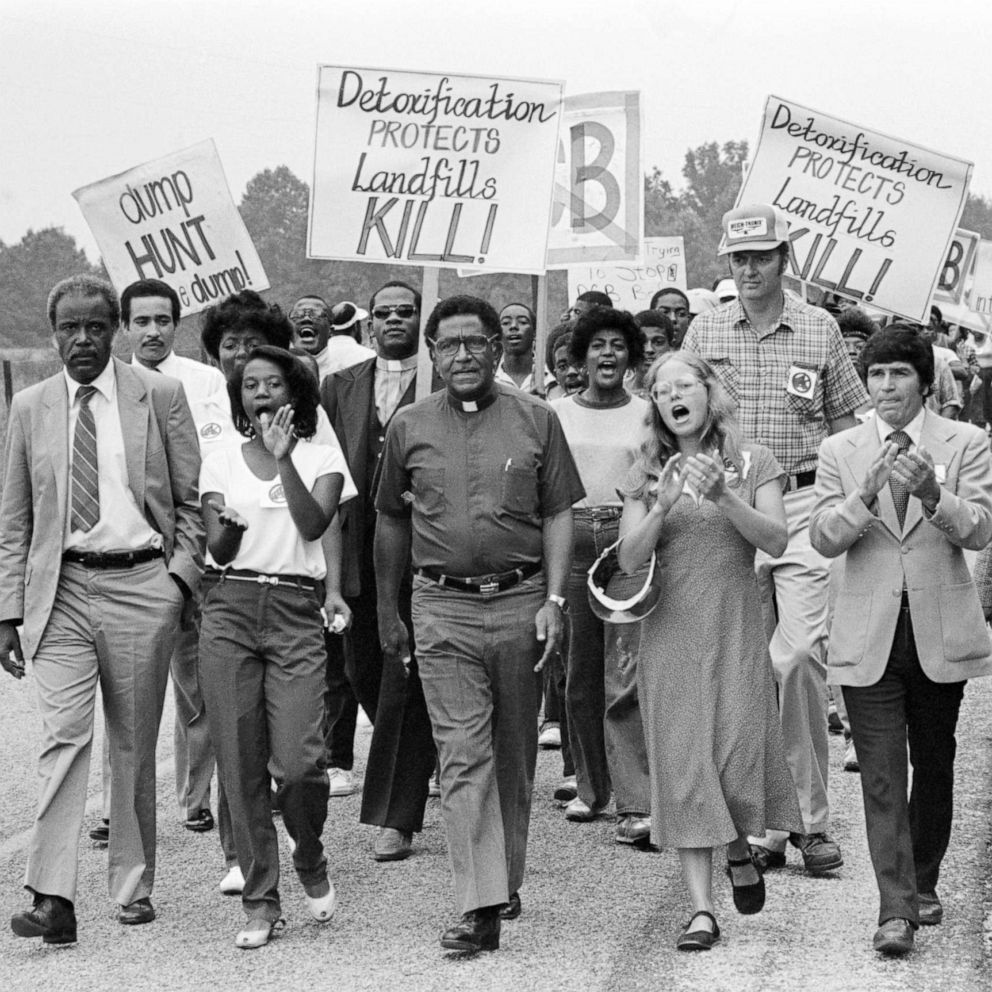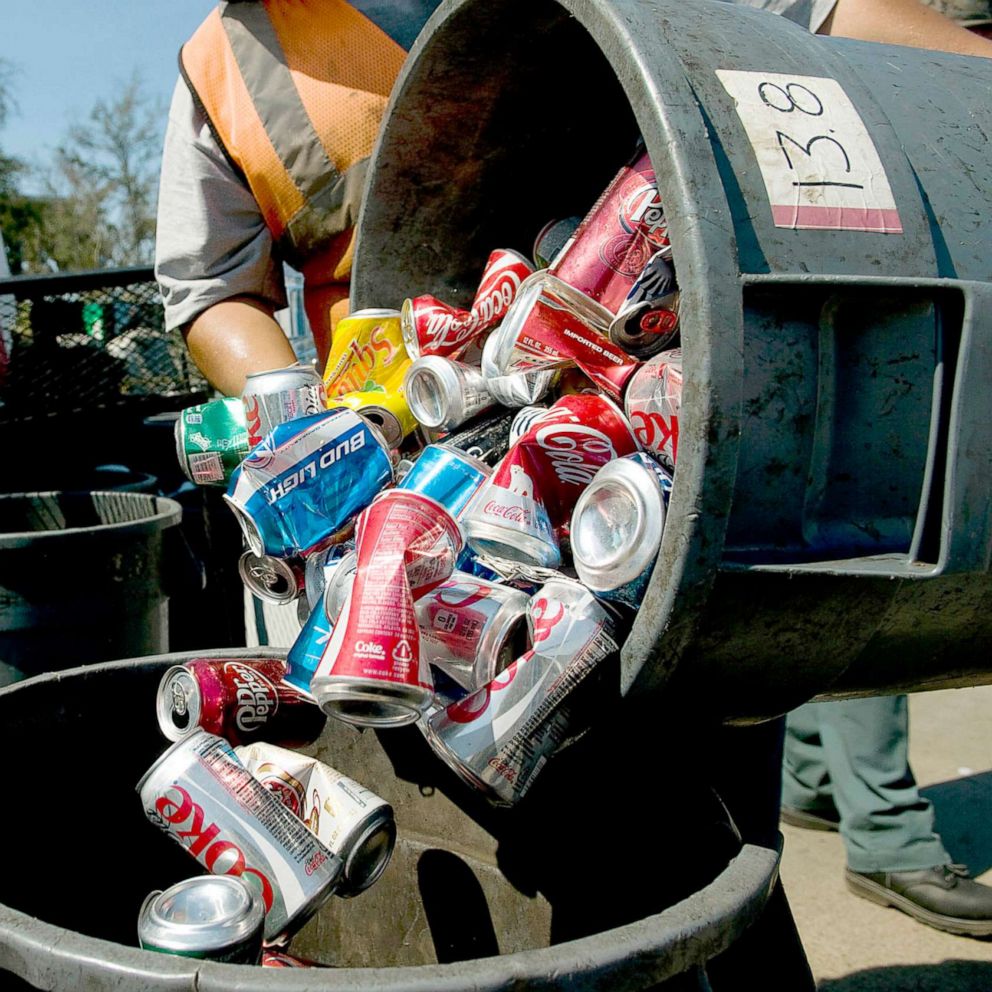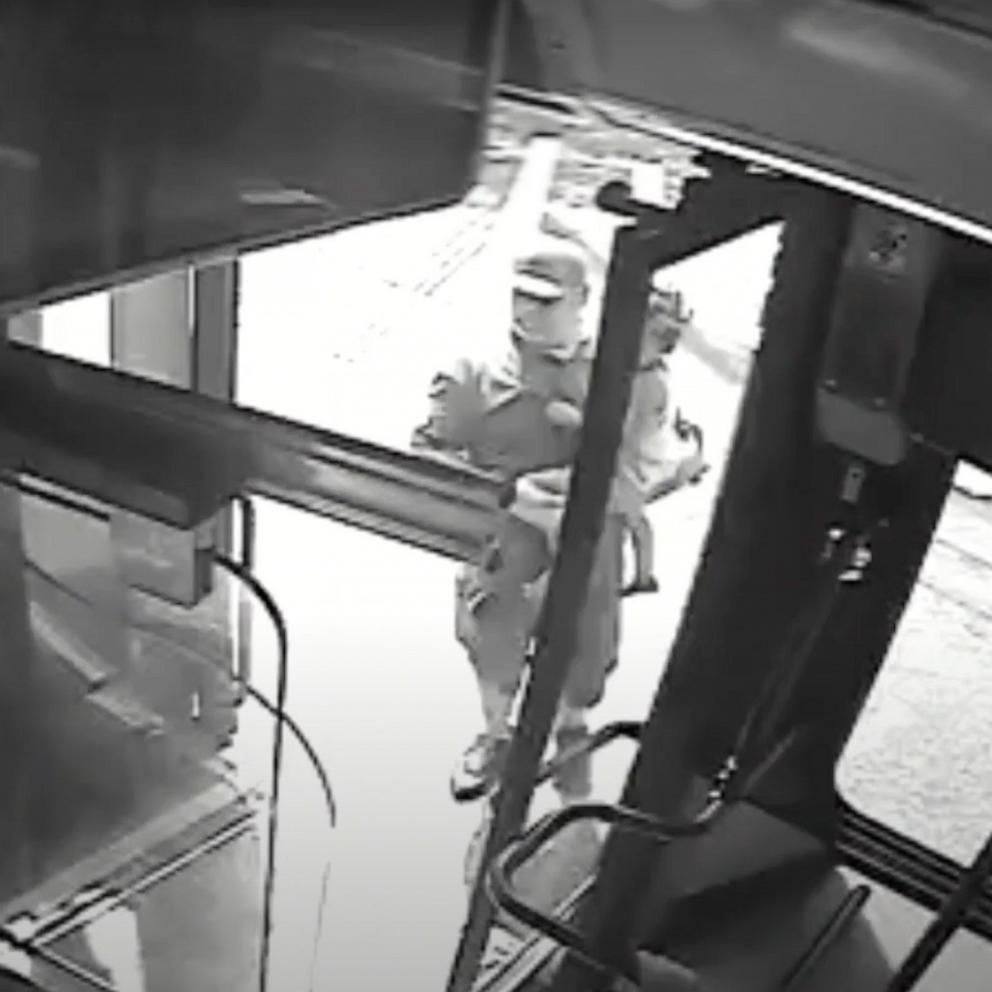3 things that could improve America's recycling problem
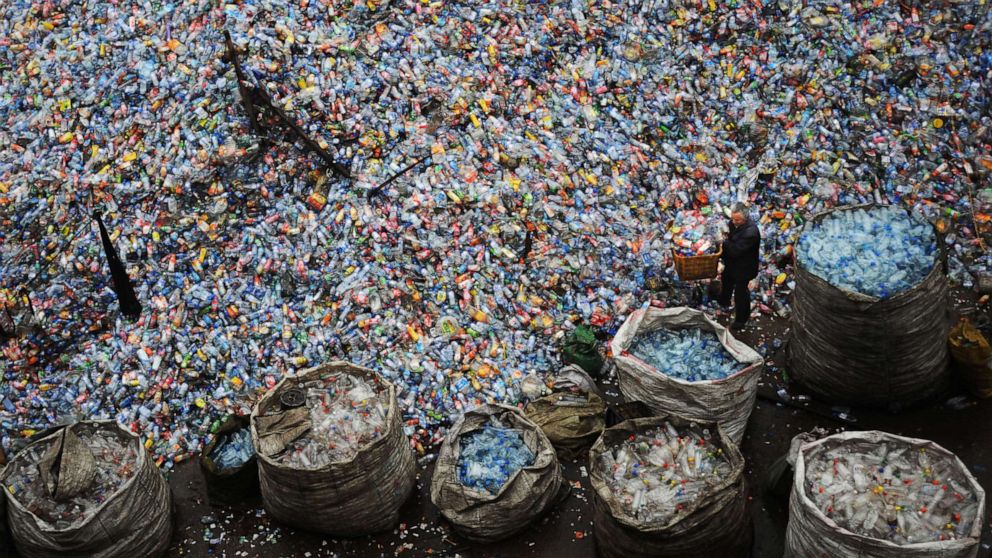

Many of us crush LaCroix cans, break down cardboard boxes and try really hard to get all that peanut butter out of the jar to put it in the recycling bin instead of the trash -- a small victory for the environment. Or is it?
We've been told recycling is a great, green solution for our planet, but according to experts, our recycling system as it currently stands is broken.
"A lot of what's happening in America right now with recycling plastic is that it's actually going directly to landfills," White House Environmental Justice Advisory Council member Jerome Foster II told "Good Morning America."
"And it's going to the places across the world we think will recycle it, but less than 10% of all plastic recycling actually gets recycled back to reuse," he added.
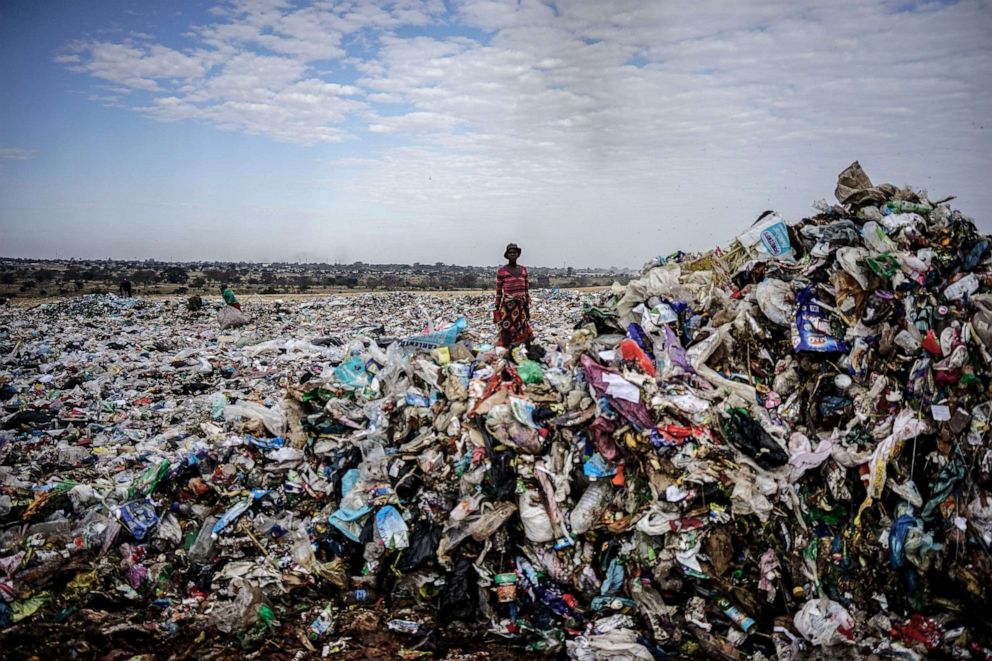
A study that appeared in Science Advances showed that only 9% of all plastic is actually recycled globally, while "12% was incinerated, and 79% was accumulated in landfills or the natural environment."
A big reason recycling is an imperfect system is that it is increasingly expensive.
"We aren't really making an impact through recycling at all. And the only way it's actually going to be fixed is if we demand that the federal government has to put subsidies on the production of recycled pallets, because right now, it's not commercially competitive because virgin plastic is still cheaper," Foster suggested.
Another reason is it takes a lot of energy to break down materials to repurpose them.
"I think for a very long time we've had this idea that trash can just go somewhere else, someone else deals with it. Why, yes we are certainly seeing that other people have to deal with our wastes," said Finn Arne Jørgensen, author of "Recycling."
And it's getting more complicated, still. As of 2018, China pushed back on U.S. plastic exports, with the country now sending plastic waste to countries such as Bangladesh, Malaysia and the Philippines to process.
So, what can be done to make our recycling system better? Is there a world in which we wouldn't have to ship our recycling across oceans only for it to wind up in landfills? Here are some suggestions from climate researchers and experts.
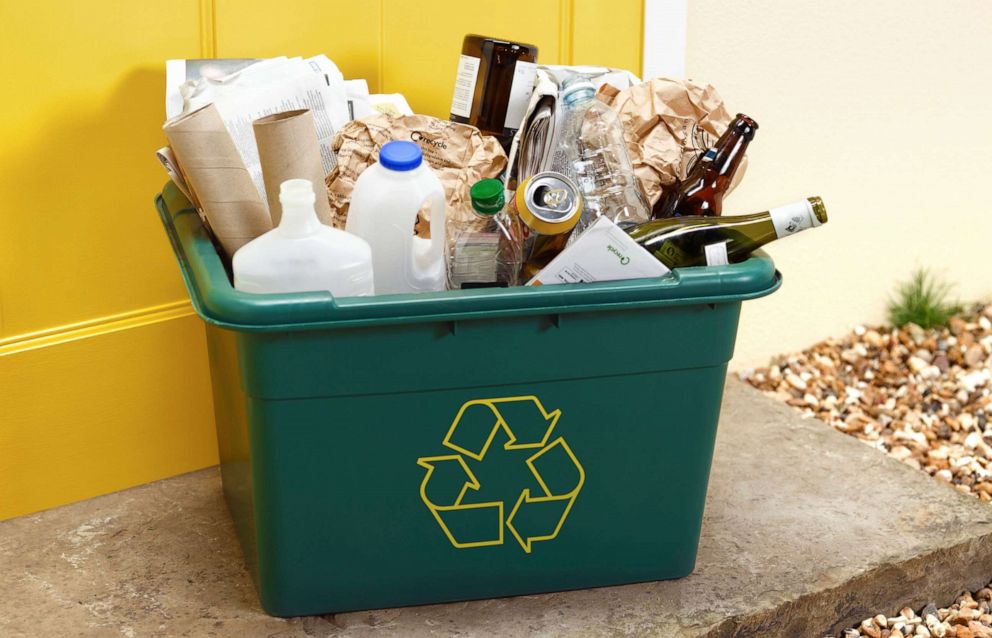
1. Focus attention on industries
"I think recycling is the best example of why that's sort of a damaging way to frame things, it will have no impact, in my opinion, on stopping climate change at all," Peter Kalmus, a climate scientist at NASA shared with "GMA."
"In fact, [focusing on individual recycling] might even have a negative effect on stopping climate change, because it's like a psychological pressure release valve that allows people to think that things are OK," Kalmus said.
The real issue, he stated, is that plastic producers and fossil fuel corporations are putting the blame on individuals and diverting attention from the scale of waste that their processes contribute to each year.
"They're making it seem like it's our fault, you know, [like] if we just recycle more ... we wouldn't have these problems," said Kalmus.
If we break down our assumptions about recycling being synonymous with being green, it begs the question: Where did we get the idea that it was so good for the planet in the first place?
A big push was made by corporations to emphasize consumer recycling through the Keep America Beautiful campaign in the 1960s and '70s, which coincided with the rise of environmentalism.
"The Keep America Beautiful organization is very much promoting this narrative that once we have produced our packaging and sent it out our products, it's no longer our responsibility. The responsibility is on the consumer. And they have been lobbying very hard. Corporations want to avoid any kind of environmental interventions in their activities," said Jørgensen.
2. As a consumer, emphasize the order in 'reduce, reuse, recycle'
The best recycling system is one where, well, you don't get to the point where you need to recycle at all," Jørgensen shared.
Because of all the energy, money and pollution involved with recycling, Jørgensen suggests that people aim to recycle less by consuming less.
"Basically, if you have to recycle something, you have already failed to some extent, because you should intervene before then," Jørgensen said. "You should reduce first, reuse second, and then recycle. I mean that's the mantra."
3. Become more aware of the waste you produce
"There's a lot of waste that's just being shipped around the planet, looking for a home for someone to deal with it," Jørgensen said.
Looking to other countries as an example, Jørgensen writes in his book "Recycling" about parts of Japan where consumers sort their recycling into categories. And not just paper, cardboard, plastic and metal, but 34 different categories of materials.
"This is, of course, massively annoying … but what it does is that it keeps waste in the mind, it makes people think about the waste they produce. And that is one of the things that I think not enough people do," Jørgensen said.
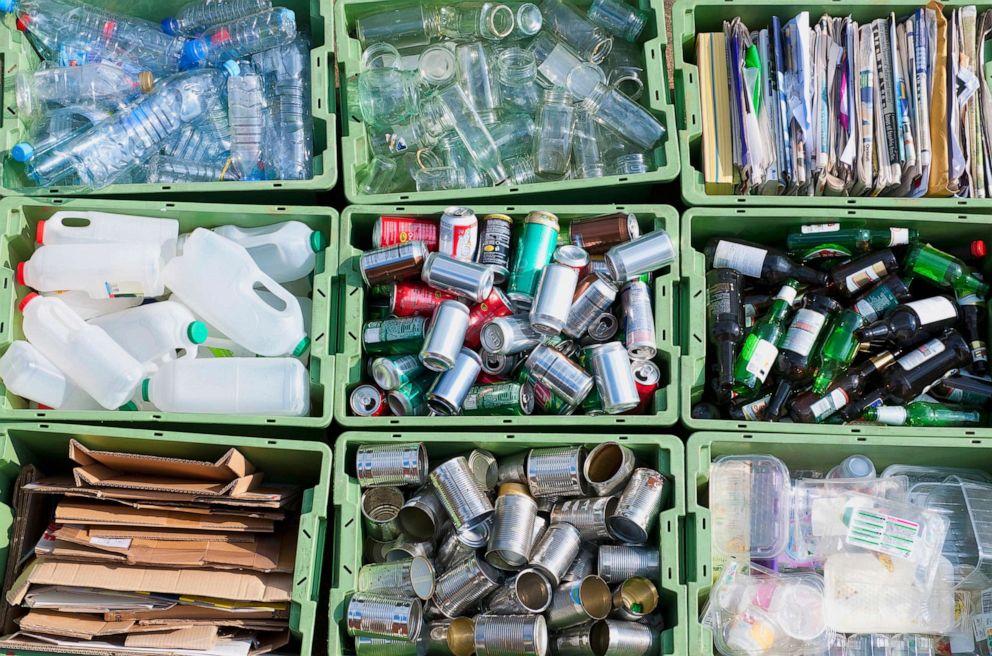
Many toss trash and recycling, and don't look back. And many of us don't pay mind to how many times a week we are filling up our bins.
"We're not mindful of the ways that we produce because it is so convenient to generate waste. I think it's almost as bad to have too-convenient-to-invisible recycling systems [as it is] to not have any at all, because again, you're never really confronted with the consequences of what you do," he added.
Experts are not saying you should stop recycling, but they are suggesting that you call up your representative to advocate for a change in policy that would spread out the responsibility for taking care of our planet.
